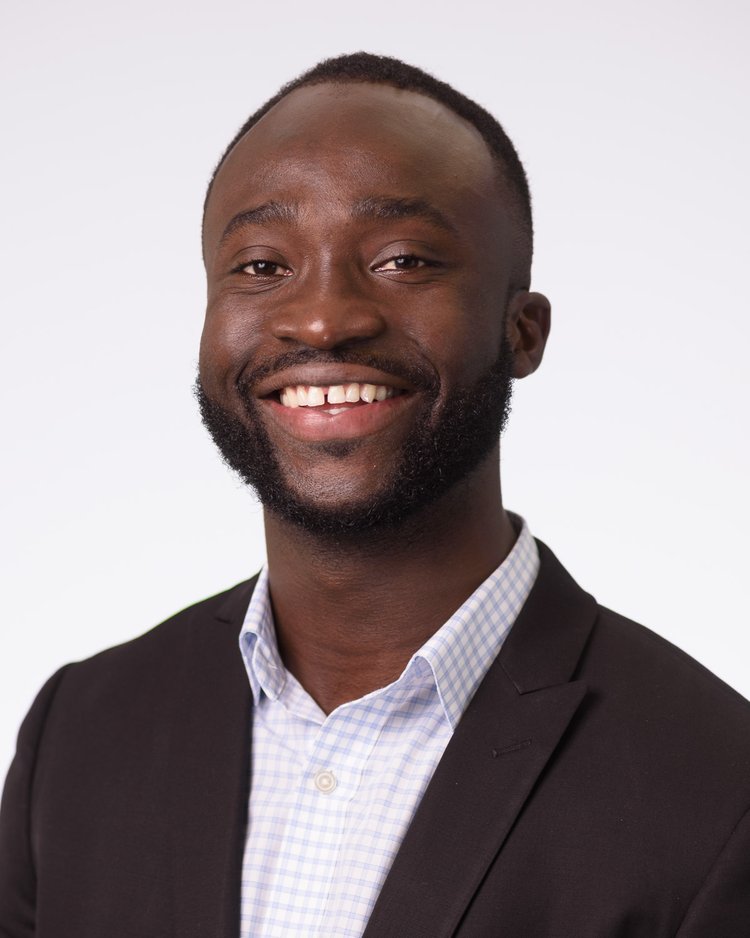Say hello to Abbey Wemimo, BLADE Con’s keynote speaker and the co-founder and CEO of Esusu, a company that helps immigrants and minorities build credit and financial stability through rent reporting.
At just 4 years old, Esusu is one of only a handful black-owned companies to raise $130 million and earn a $1 billion dollar valuation, making it an outlier in the fintech world. But even though the commercial success of this startup has been nothing short of extraordinary, to Abbey, the story of Esusu is personal.

“We were treated guilty until proven innocent by the financial system—but that’s the name of the game.”
As new immigrants with no credit scores and essentially no financial identity, Abbey and his family were easily taken advantage of, being forced to borrow money at over 400% interest rates just to keep a roof over their heads. This story isn’t unusual for those from low-income households, but it’s especially common to immigrants and people of color.
The average white family has 10 times the wealth of the average black family, and 66% of that white wealth is due to home ownership. Even though the initial culprits of the wealth gap, such as slavery and Jim Crow, are seen as things of the past, the effects still no doubt linger.
Today, young white folks without resources of their own can often lean on their parents or grandparents to pass on property assets, effectively keeping the wealth train running. But for black people who have lacked generational access to ownership or the privilege of wealth accumulation, there is simply nothing to pass on.
Esusu’s mission is to leverage data to bridge the racial wealth gap
Abbey believes that the onus of creating equality needs to be shifted from punishing the most vulnerable in our country to addressing the failures of the system itself. For Esusu, one way of doing this is by constantly evaluating new ways of rethinking the criteria of what constitutes a credit score. Namely, determining the ways in which this 3-digit number is biased against the people who need the most support–especially in what is supposed to be the richest nation in the world.
In a system that doesn’t give people the benefit of the doubt, Esusu’s goal is to provide support in any possible way.
110 million people rent in the United States, on average, giving $1.4 trillion to their landlords every year for a place to call home, but less than 10% of that data is captured.
This is where Esusu found an opportunity.
By giving people the ability to report on-time rental payments, Esusu effectively empowers those who are marginalized by the system to build their credit scores and strengthen their financial identities. But they don’t stop there. After COVID-19, Esusu introduced a new service, which helps people in securing zero-interest loans—without the late fees or the gimmicks.
“The people I am looking for to be with us on this journey are justice capitalists.”
Finding success has come with its share of difficulties for Esusu–from being told no by over 300 investors to getting kicked out of a Denny’s because Abbey and his partner couldn’t afford a hotel room at the time. Everyone told Abbey and Samir that they were living in a fantasy if they thought that they could do well and make money. In a country that often places profit before people, Esusu’s business model was just seen as too good to be true.
Yet, the company was able to grow with the help of a unique set of people. “I am looking for people to be with us on this journey who are justice capitalists,” Abbey explained. “Folks who believe that doing well and doing good are by no means mutually exclusive.”
To Abbey, Esusu is about giving people a fighting chance, specifically those that society has chosen to lose faith in. Esusu doesn’t bet on people just because of their zip code, their education level, or their financial identity–they bet on potential. And it is through this noble attitude and innovative business model that Abbey hopes to continue changing lives for the better–one credit score at a time.
If you want to hear more about Abbey’s story and his success with Esusu, be sure to register for BLADE Con! Our two-day, virtual event will showcase black innovators who are thriving on various digital platforms and equip all attendees with the knowledge to capitalize on all the opportunities in the digital economy.
You won’t want to miss it!



